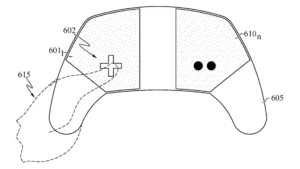New Delhi, July 5, 2025 — The Delhi High Court has refused to grant interim relief to global automobile major Toyota in a patent infringement lawsuit it filed against an Indian company. The Court’s order signals a firm approach to evaluating intellectual property claims, especially in complex technology-related cases.
🔎 The Lawsuit
Toyota, a leading Japanese car manufacturer, approached the Delhi High Court claiming that an Indian firm had unlawfully used its patented automotive technology. Though details of the patent involved were not made public, Toyota argued that the Indian company’s products infringed upon its exclusive intellectual property rights.
The company sought a court-ordered injunction, hoping to immediately stop the Indian firm from using or selling the allegedly infringing products in the Indian market. Toyota emphasized the importance of protecting its technological innovations and preventing damage to its brand and business.
⚖️ Court’s Stand
The case was heard by Justice Anish Dayal, who declined Toyota’s request for interim relief. The Court ruled that holding a patent alone is not enough to justify an injunction at the preliminary stage.
Justice Dayal observed that patent disputes often involve technical complexities and require deeper investigation. He stated that a mere claim of infringement cannot result in a blanket order against the defendant without careful judicial scrutiny.
The Court emphasized the importance of considering all sides. It weighed the “balance of convenience” and the potential hardship that an injunction could cause to the Indian company. The judge ruled that an immediate halt to operations could unfairly affect the Indian firm before the matter is fully adjudicated.
🧩 Legal Significance
This decision reinforces the judiciary’s cautious approach in IP matters. It highlights that patent holders — even large multinational corporations — must present strong, clear evidence before expecting urgent court action.
The Court’s refusal does not end the matter. Instead, it means the case will now move forward through the regular judicial process. Both parties will have the opportunity to present their arguments and technical evidence in detail.
🏭 Implications for the Indian Company
The Indian firm, whose identity remains undisclosed in initial reports, has gained temporary relief through the Court’s decision. It will be allowed to continue its business activities for now. This ruling offers reassurance to Indian businesses that patent enforcement actions will be tested thoroughly and fairly, especially when initiated by foreign giants.
🌐 Industry Context
Toyota is known for vigorously defending its intellectual property globally. As India’s automotive sector continues to grow, patent disputes between local manufacturers and global players are becoming more common. This case is an example of the challenges multinational corporations face when navigating India’s legal landscape.
The ruling also underlines the importance of strong legal documentation and evidence when initiating IP litigation in India. Courts are unlikely to grant early-stage relief without thoroughly understanding the technical merits of the case.
📌 Conclusion
The Delhi High Court’s decision to reject Toyota’s plea for interim relief underscores its commitment to due process in patent cases. While the matter is still under legal review, the Court has sent a clear message — all parties, regardless of their size or origin, must meet the same standards of proof before expecting judicial intervention.
⚠️ Disclaimer:
This article is based on publicly available reports and is for informational purposes only. It does not constitute legal advice. For accurate legal interpretation, readers should refer to official court documents or consult legal professionals.




